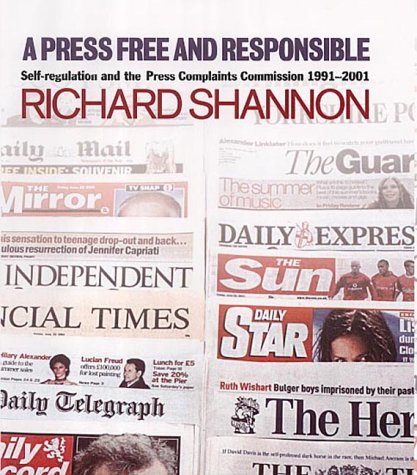When the Press Complaints Commission was set up in 1991, British journalism was at an all-time low. In a democracy the media must be free but competition between tabloids had produced a press notorious for intrusiveness, tastelessness, inaccuracy, callous methods and chequebook journalism. The only curb was the old Press Council, funded by the industry itself and widely seen as a watchdog with false teeth. Some more forceful body was clearly needed; the question was whether it could succeed, or whether the Government's threat of statutory regulation would be carried out.;This book traces the development of the PCC in its first decade. It is also a telling picture of British life and public opinion during the 1990s. Princess Diana's complicated relationship with the press and her tragic death; the Barings scandal, the Camillagate tapes, cash for questions, and the unmasking of Jonathan Aitken are only a few of the stories the PCC has had to deal with. The book reveals the struggles that divided both the PCC and the industry itself, as well as exploring the serious questions, such as how to balance public interest with an individual's right to privacy.I do believe the popular press is drinking in the Last Chance Saloon, said David Mellor in 1989.
A decade on, thanks to the influence of the PCC, it seems that the press is out of the saloon and self-regulation is a reality.
- ISBN10 0719563216
- ISBN13 9780719563218
- Publish Date 6 September 2001
- Publish Status Transferred
- Out of Print 11 June 2005
- Publish Country GB
- Publisher John Murray Press
- Imprint John Murray Publishers Ltd
- Format Hardcover
- Pages 398
- Language English
